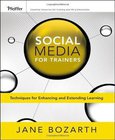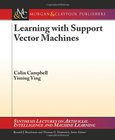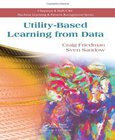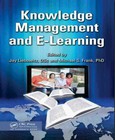Learning eBooks Page 44
Download free Learning eBooks Page 44
Social Media for Trainers
Techniques for Enhancing and Extending Learning
New social media technologies and strategies provide quick, easy solutions to many of the challenges faced by workplace training practitioners. Social media vehicles such as Twitter and Facebook, for example, can help trainers build learning communities, facilitate quick assignments, offer updates or follow-up tips, and otherwise extend the reach of the formal training event. Social Media for Trainers is the first how-to guide on the incorporation of social networking techniques into a trainer's repertoire. It covers the most popular Web 2.0 tools for instructor-created content (blogs), community-created content (wikis), micro-blogging (Twitter), and community sharing and interaction (Facebook), all with detailed instruction on conducting several tra...
Learning with Support Vector Machines
Support Vectors Machines have become a well established tool within machine learning. They work well in practice and have now been used across a wide range of applications from recognizing hand-written digits, to face identification, text categorisation, bioinformatics, and database marketing. In this book we give an introductory overview of this subject. We start with a simple Support Vector Machine for performing binary classification before considering multi-class classification and learning in the presence of noise. We show that this framework can be extended to many other scenarios such as prediction with real-valued outputs, novelty detection and the handling of complex output structures such as parse trees. Finally, we give an overview of the ...
Utility-Based Learning from Data
Utility-Based Learning from Data provides a pedagogical, self-contained discussion of probability estimation methods via a coherent approach from the viewpoint of a decision maker who acts in an uncertain environment. This approach is motivated by the idea that probabilistic models are usually not learned for their own sake; rather, they are used to make decisions. Specifically, the authors adopt the point of view of a decision maker who (i) operates in an uncertain environment where the consequences of possible outcomes are explicitly monetized,(ii) bases his decisions on a probabilistic model, and(iii) builds and assesses his models accordingly. These assumptions are naturally expressed in the language of utility theory, which is well known from fi...
Learning Autodesk 3ds Max 2010
Foundation for Games
Learning 3ds Max 2010 Foundation for Gamesis the key to unlocking the power of Autodesk 3ds Max, directly from the creators of one of the world's most powerful 3D animation and effects software products. Get hands on experience with the innovative tools and powerful techniques available in the new version of 3ds Max, through all new project-based lessons. Projects will include valuable game assets and examples. Topics will include modeling, animation, materials mapping, rendering. Autodesk will be contributing assets (models and images) from high-profile studios. The DVD will include: bonus short films, demos, hotkey reference, free models from turbosquid, a $160 value....
Knowledge Management and E-Learning
The rapidly growing demand for online courses and supporting technology has resulted in a plethora of structural and functional changes and challenges for universities and colleges. These changes have led many distance education providers to recognize the value of understanding the fundamental concepts of both e-learning and knowledge management (KM)including the e-learning economic model and how to change the current culture of delivery system providers. Supplying a complete examination of the synergy between KM and e-learning, Knowledge Management and E-Learning begins by considering KM practices, techniques, and methodologies in e-learning. These chapters explain how knowledge capture, retention, transfer, and sharing can help enhance the e-lear...
2007 - 2017 © eBooks-IT.org





